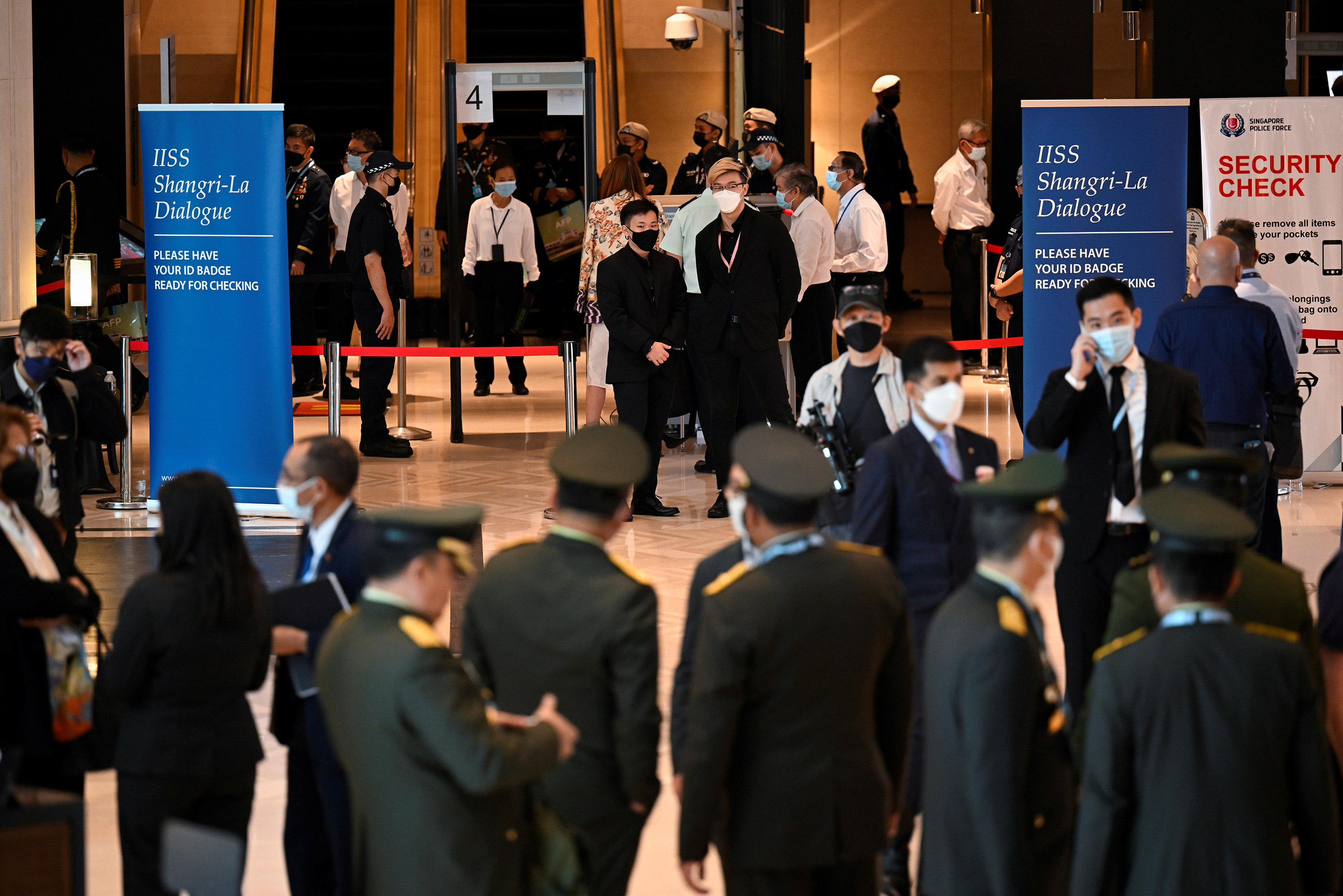
Tensions between the United States and China are expected to loom over Asia's top security meeting this week, as China has declined a bilateral meeting between the superpowers' defence chiefs.
The Shangri-La Dialogue, which attracts top defence officials, senior military officers, diplomats, weapons makers and security analysts from around the globe, will take place June 2-4 in Singapore.
More than 600 delegates from 49 countries will attend the meeting, which opens with a keynote address by Australian Prime Minister Anthony Albanese.
Analysts say the dialogue is invaluable for the many bilateral and multilateral military-to-military meetings held on the sidelines of plenary sessions and speeches delivered by defence ministers.
China's new Defence Minister Li Shangfu, however, has declined to meet U.S. Defence Secretary Lloyd Austin, the Pentagon said on Monday.
China's defence ministry spokesperson said in response to a query at a news conference in Beijing that exchanges between the two militaries have always been ongoing but that the U.S. was "entirely to blame" for current difficulties.
"On the one hand, the U.S. keeps saying that it wants to strengthen communication, but on the other hand, it ignores China's concerns and artificially creates obstacles, seriously undermining the mutual trust between the two militaries," said the spokesperson, without saying what the obstacles were.
Austin, speaking in Tokyo on Thursday, called it "unfortunate" that they would be no planned meeting.
"I would welcome any opportunity to engage with Li," Austin said. "I think defence departments should be talking to each other on a routine basis or should have open channels for communications."
Russia's war in Ukraine, tensions between China and Taiwan and North Korea's weapons programmes will also be high on the agenda of many delegates at the dialogue, analysts said. However, no Russian or North Korean government delegates will attend.
WATCHING LI
Some regional diplomats and defence analysts said they will be watching the performance of General Li, who was named China's new defence minister in March and was sanctioned by the U.S. in 2018 over weapons purchases from Russia.
Although the defence minister is a largely diplomatic and ceremonial post within the Chinese system, Li serves on the powerful Central Military Commission under President Xi Jinping and is close to his key military ally, Zhang Youxia, they said.
Drew Thompson, a visiting senior research fellow at the Lee Kuan Yew School of Public Policy at the National University of Singapore (NUS), said the snub to the U.S. was most likely Xi's decision.
"The reality is that General Li is coming with a set of instructions to paint the U.S. in a very negative light rather than a set of instructions to engage in dialogue to improve and stabilise the relationship and that is unfortunate," Thompson said.
NUS political scientist Chong Ja Ian said the lack of a formal bilateral meeting does not mean the two countries will not have contact.
"I’m sure they will go at each other during the plenary sessions, then there are the breakouts and possible informal conversations," he said.
Lynn Kuok, a senior fellow at the International Institute for Strategic Studies - the think tank that organises the Shangri-La Dialogue - said she was not optimistic about U.S.-China relations improving.
"What we really need to be focused on here, however, are guard rails to prevent competition from spiralling into open conflicts, but I think China is also suspicious of that (the guard rails)," Kuok said.
Other key issues that are likely to be discussed include ongoing tensions in the disputed South China Sea and East China Seas.
The evolving security relationships of AUKUS, which tightens ties between the U.S., Britain and Australia, as well as the Quad grouping of the U.S., Japan, India and Australia are also expected to feature, particularly given China's concerns that the groupings are an attempt to encircle China.
(Reporting by Xinghui Kok and Greg Torode; Editing by Raju Gopalakrishnan and Gerry Doyle)







